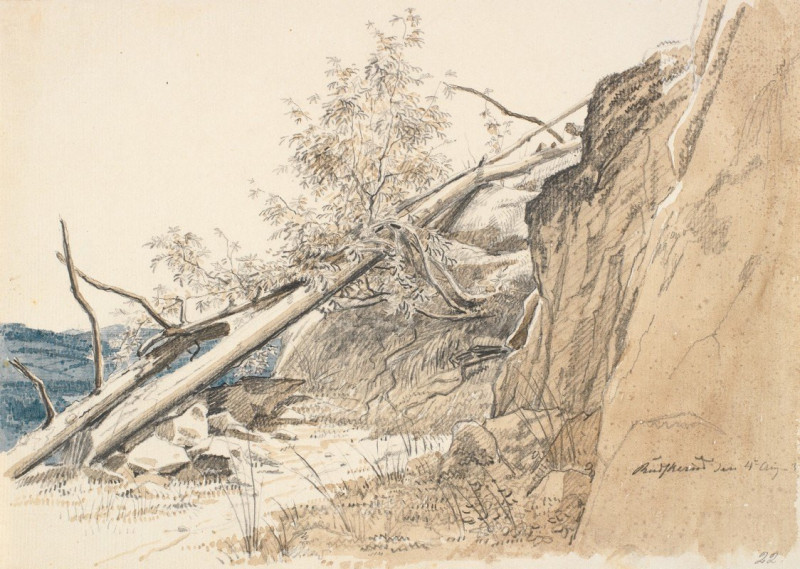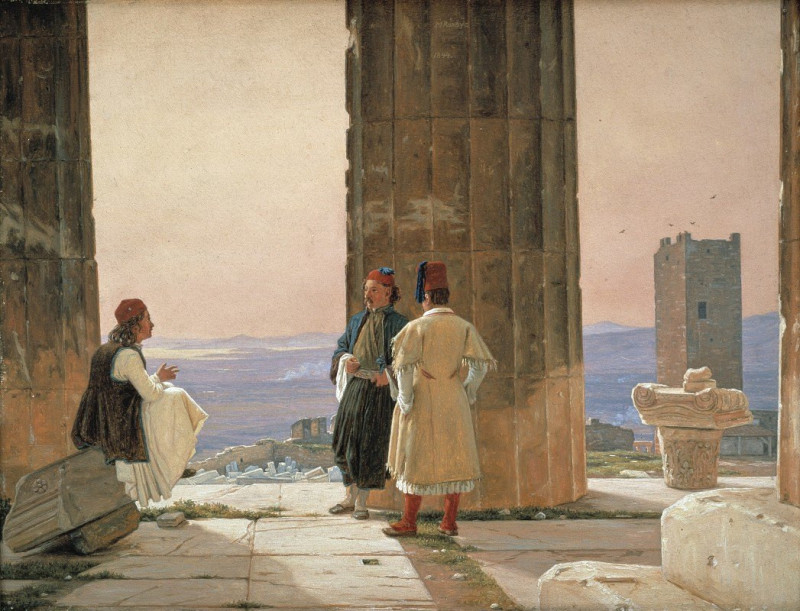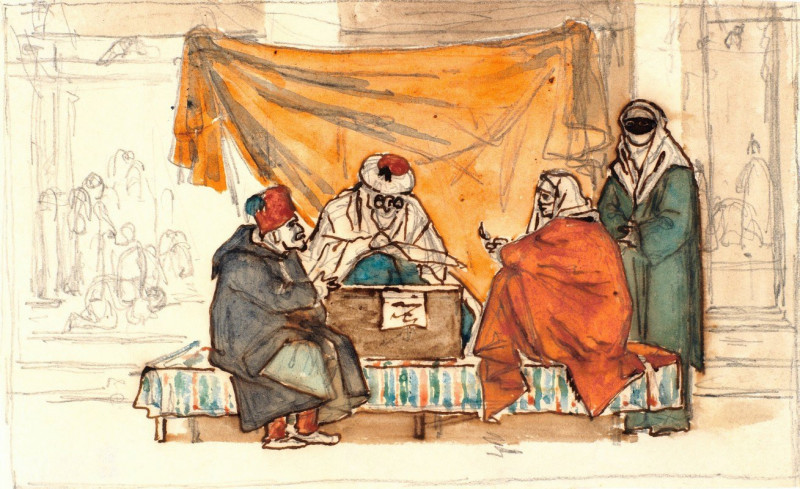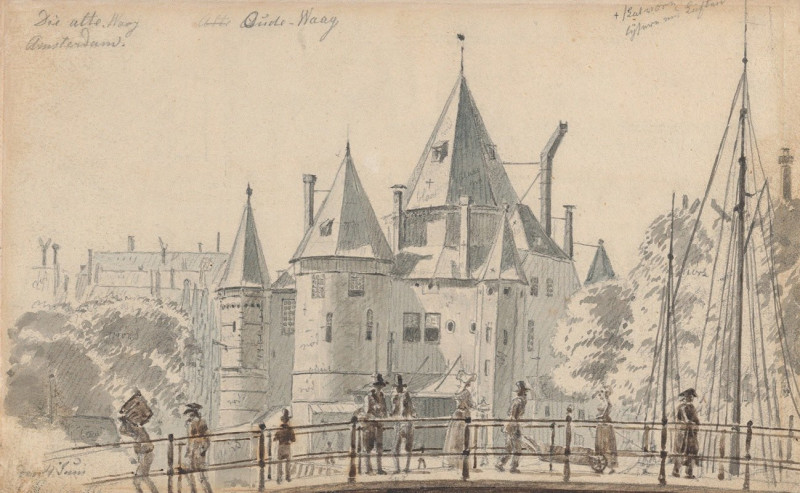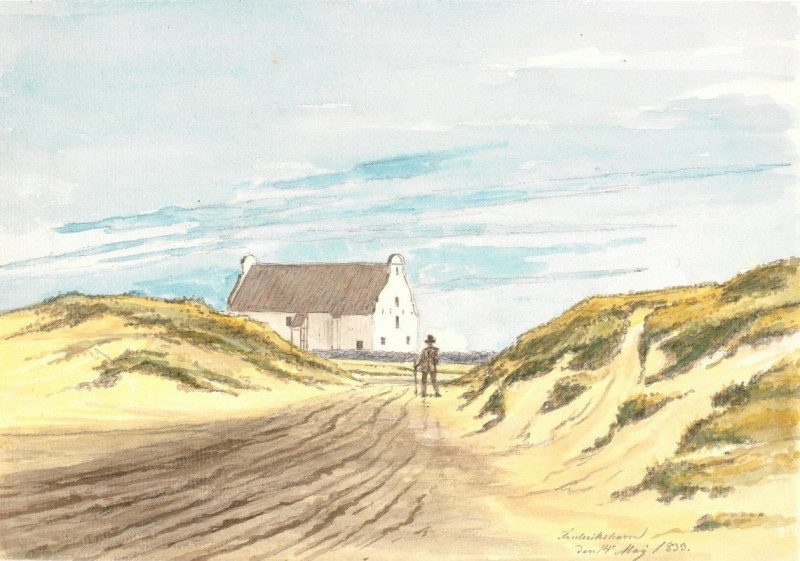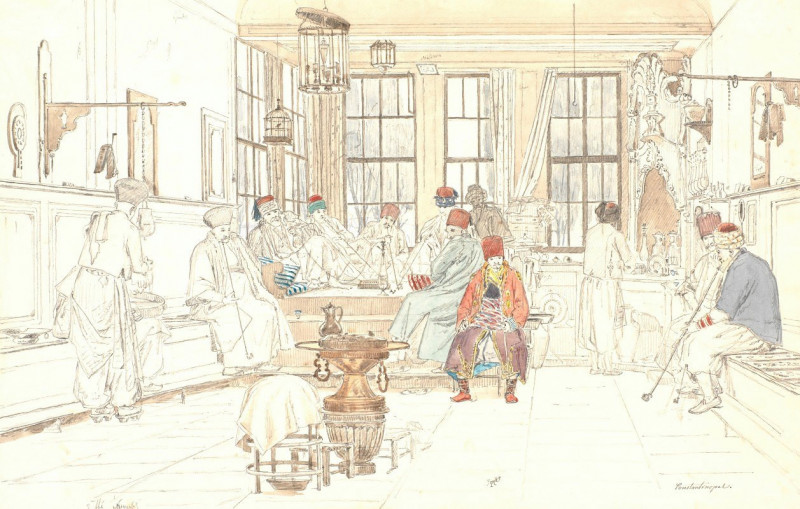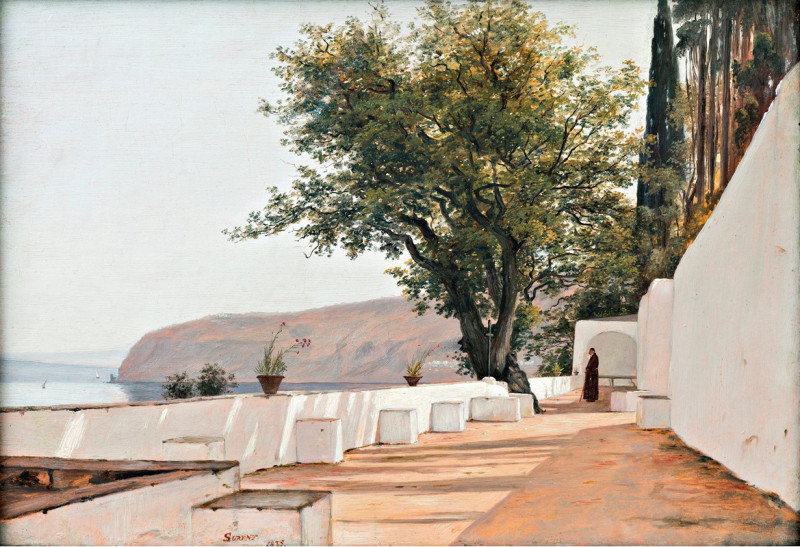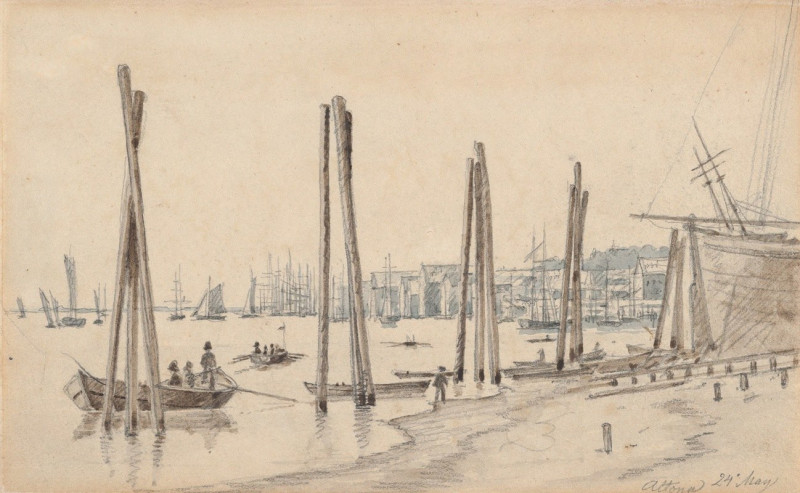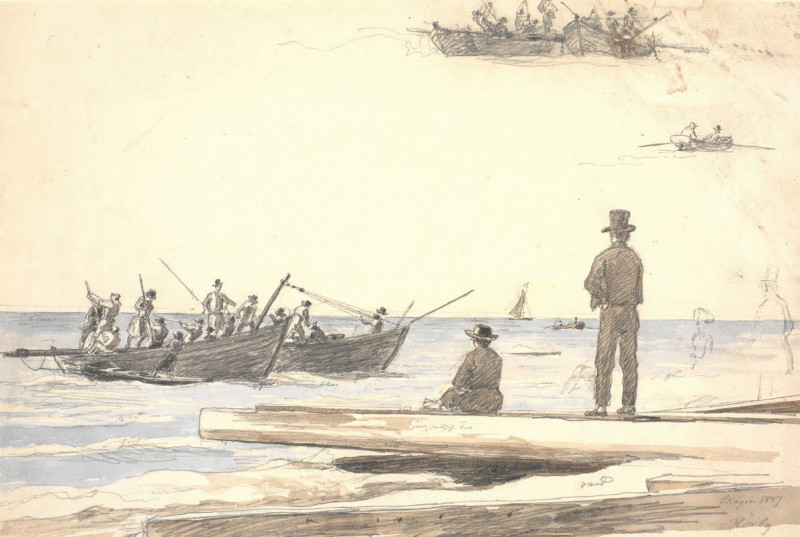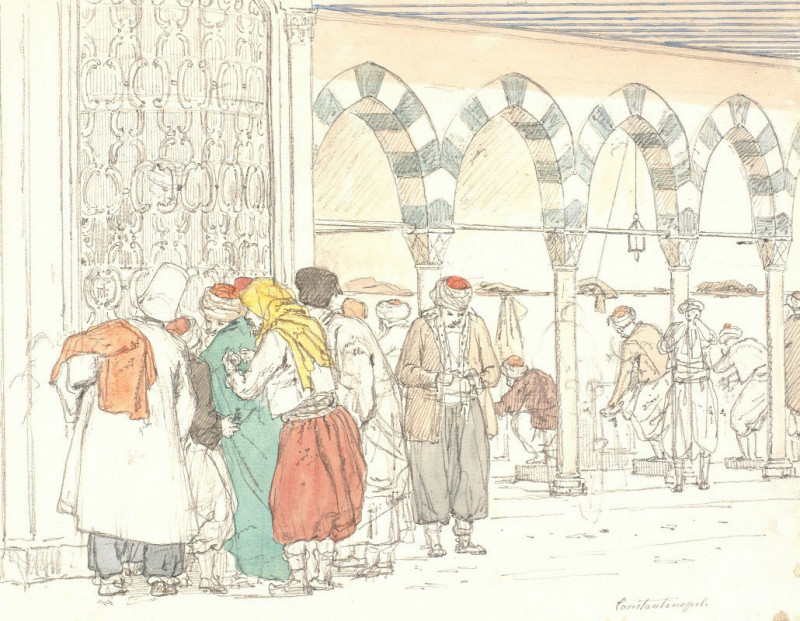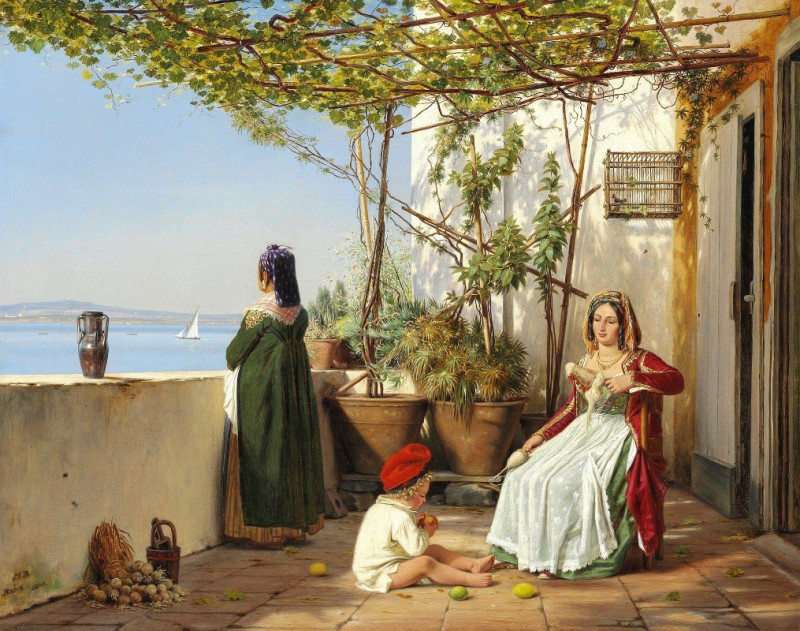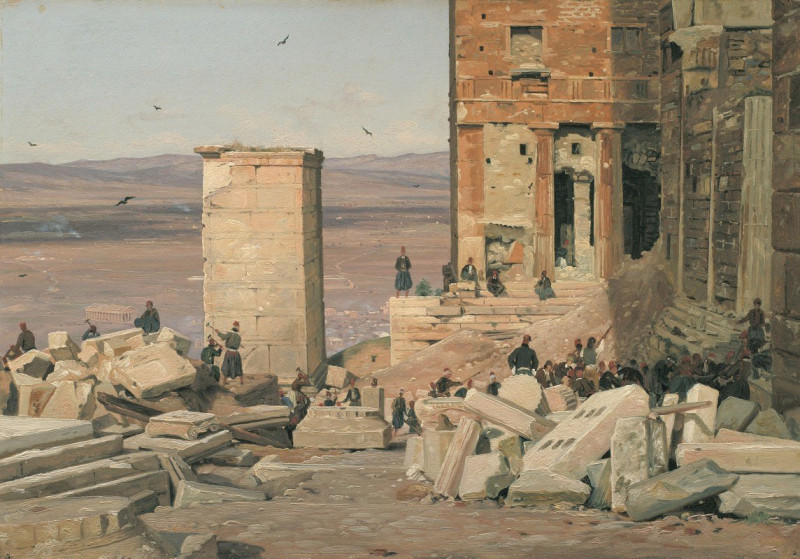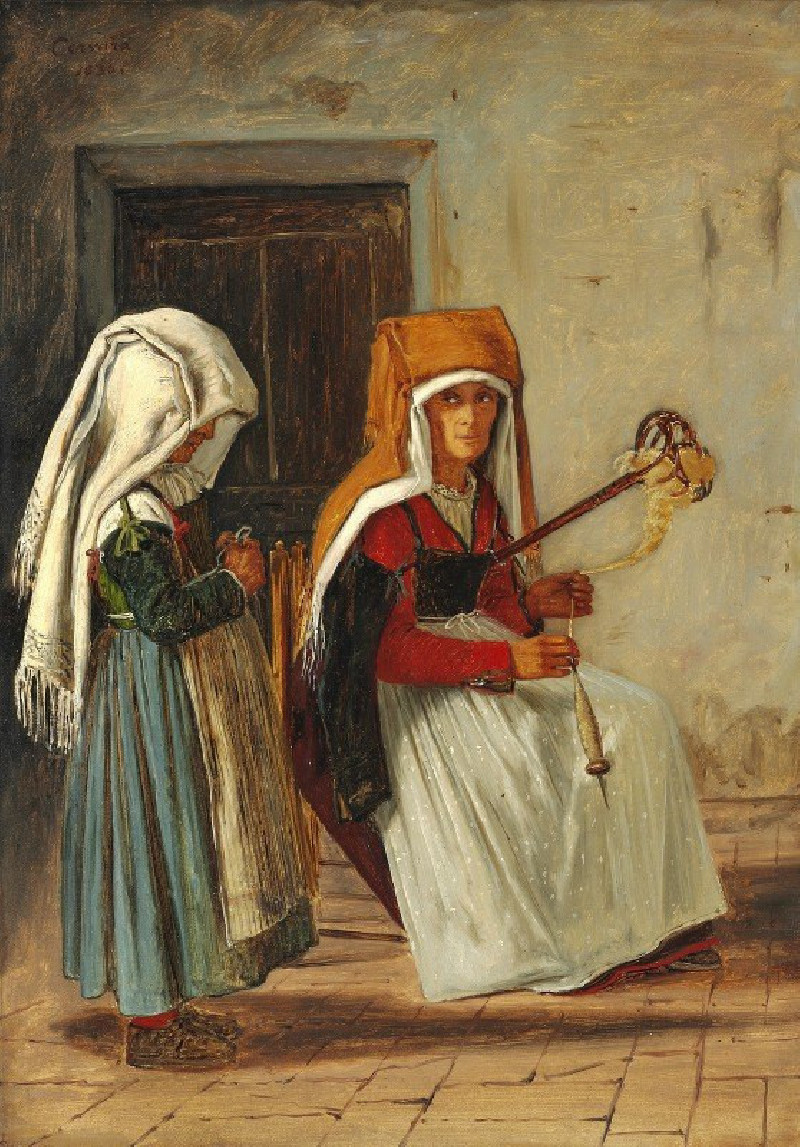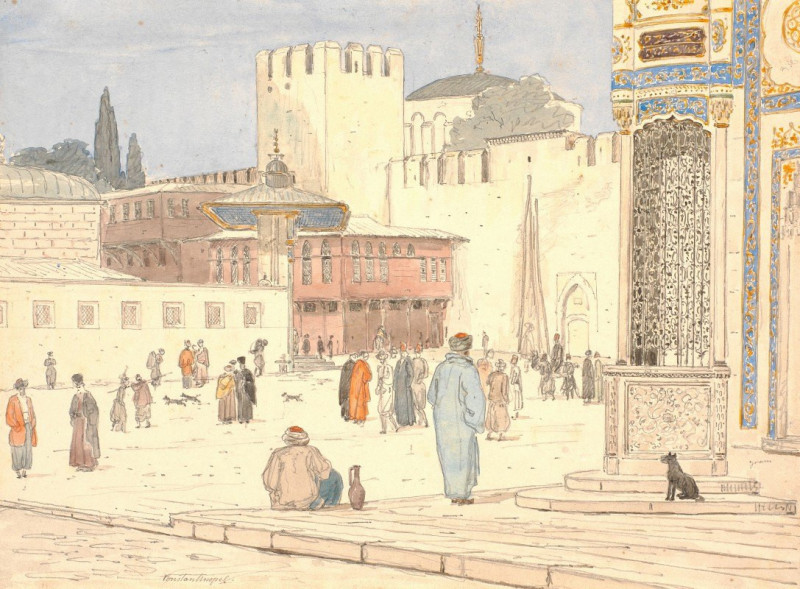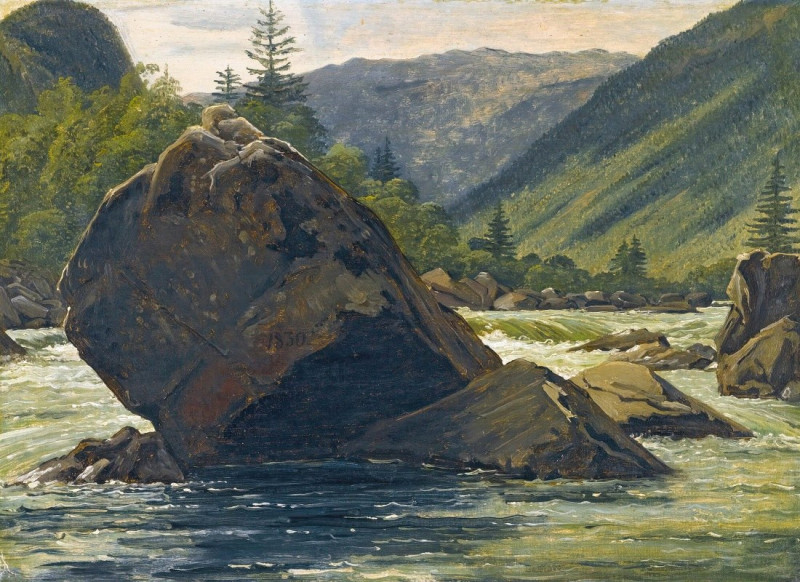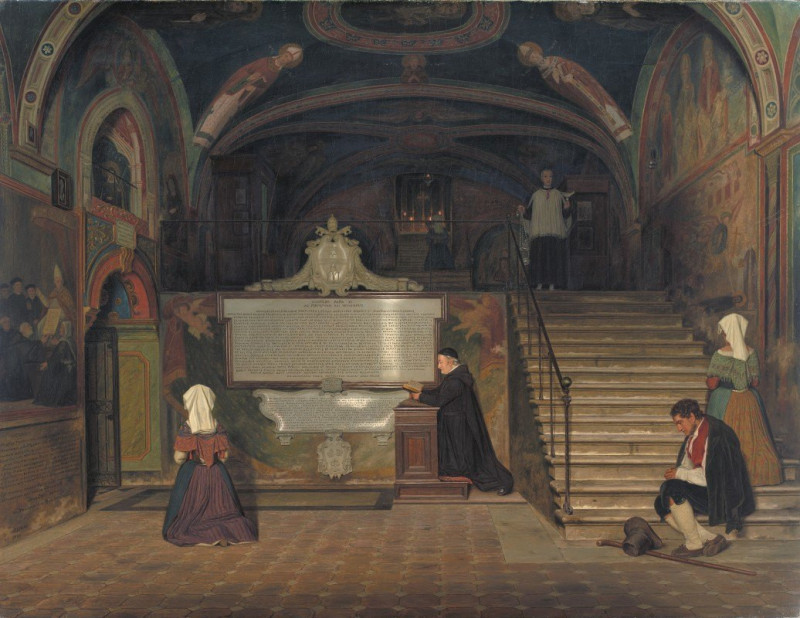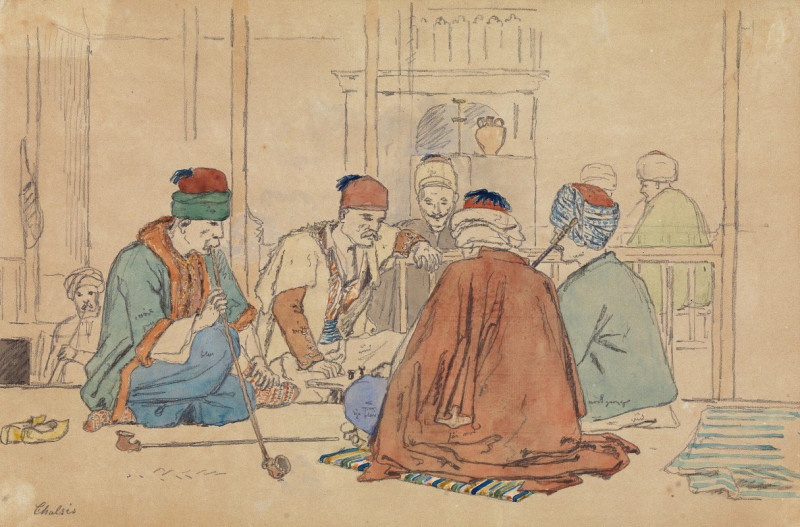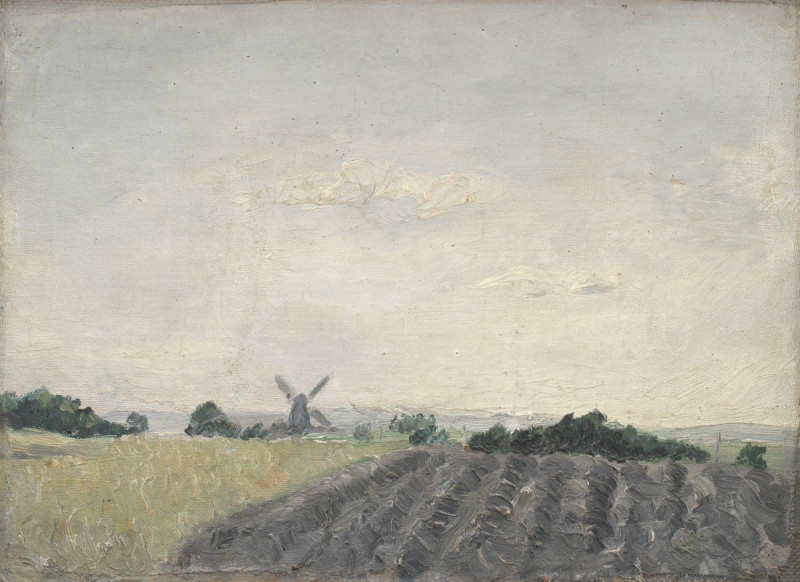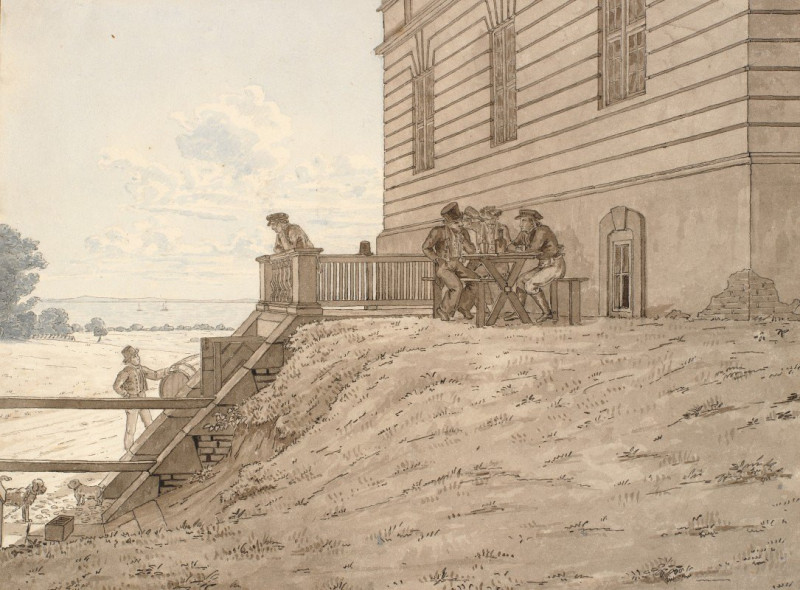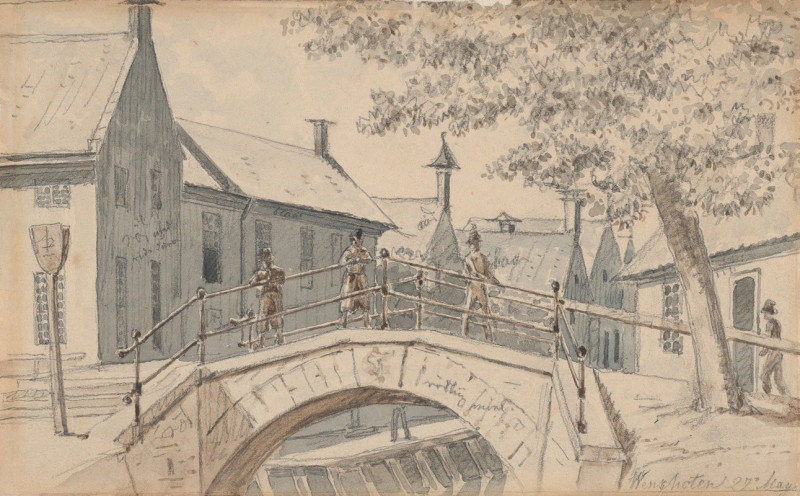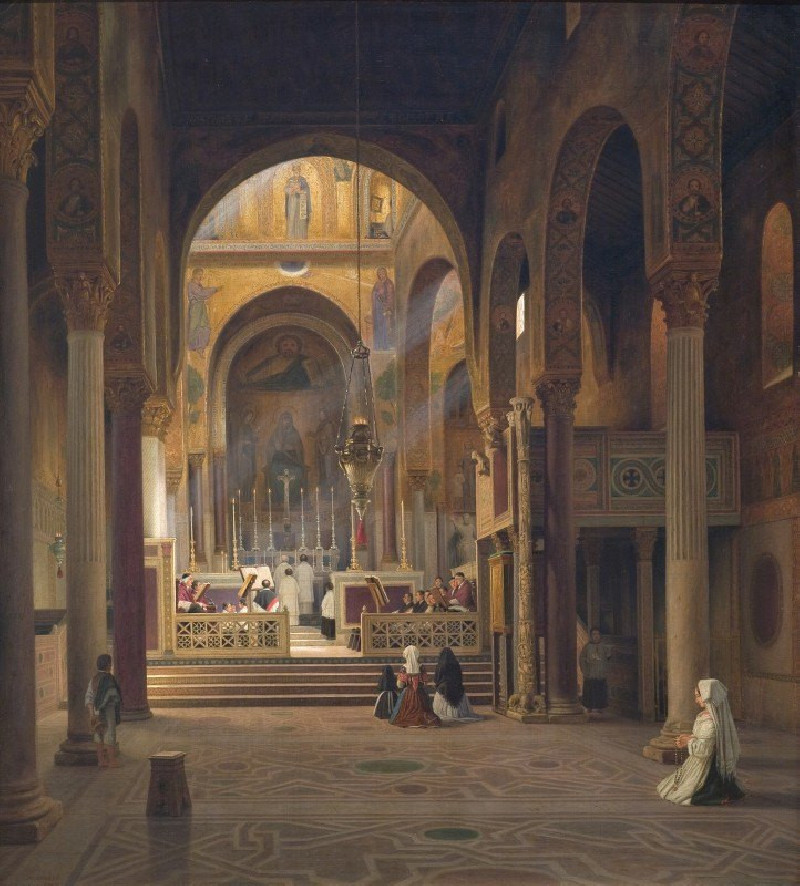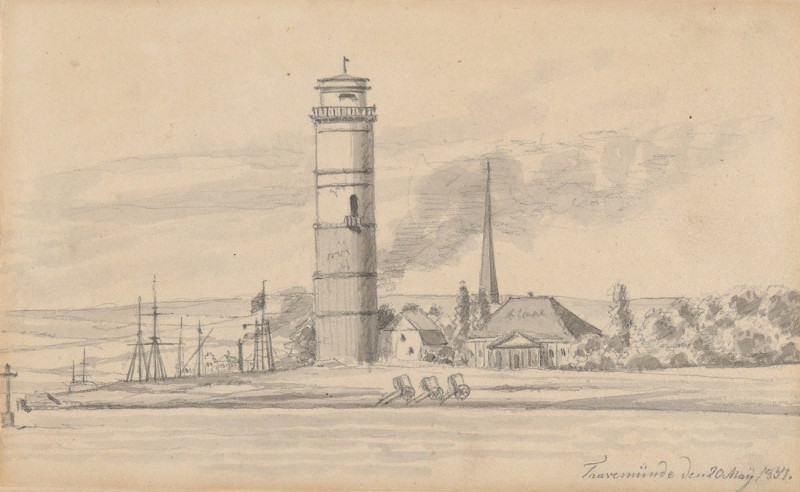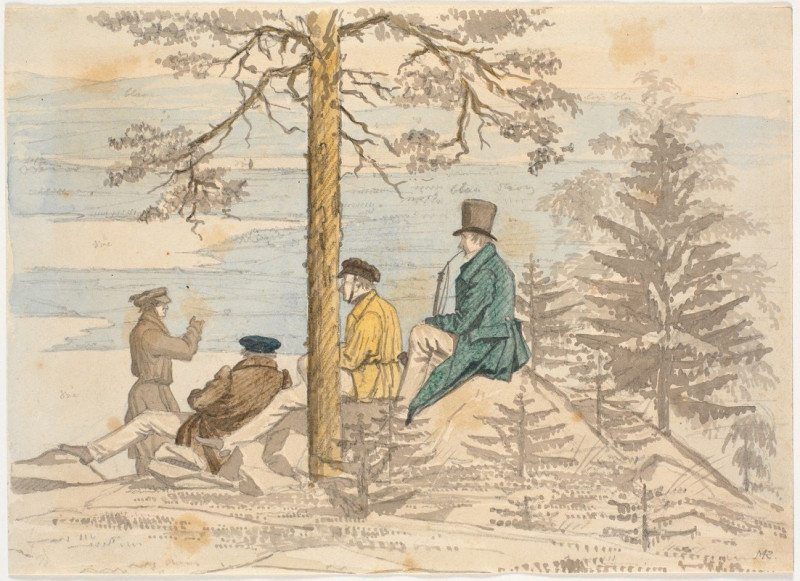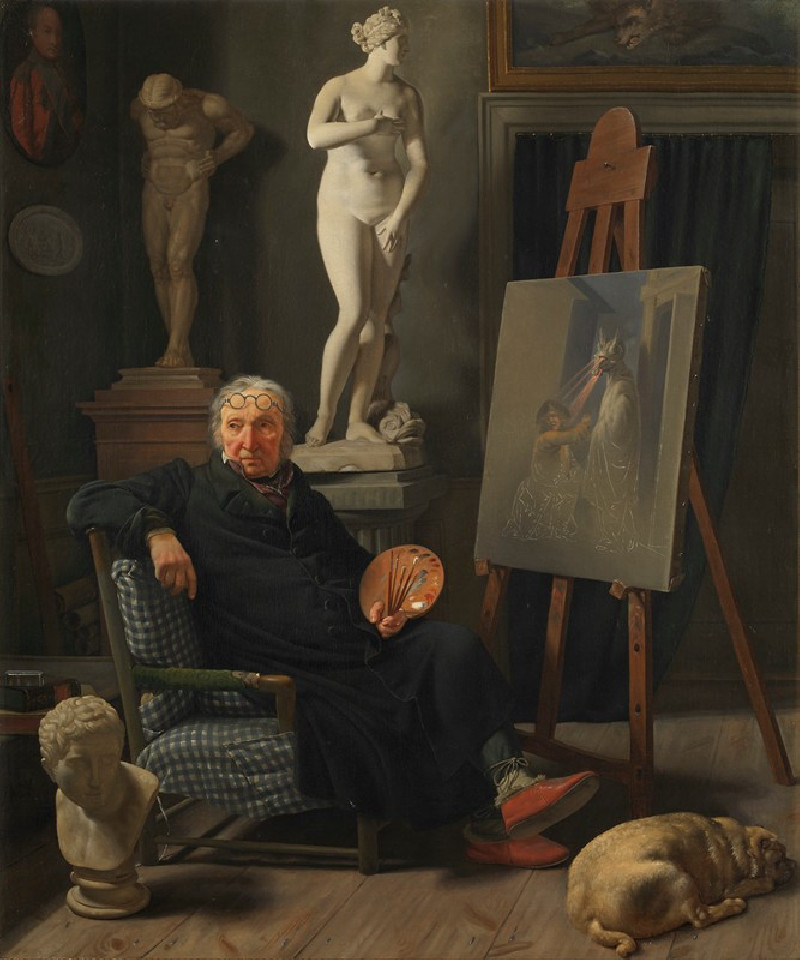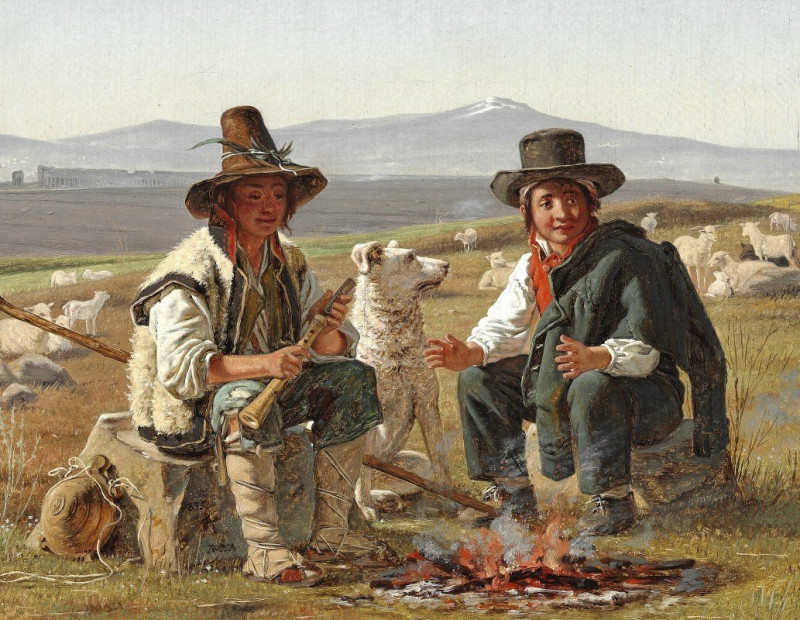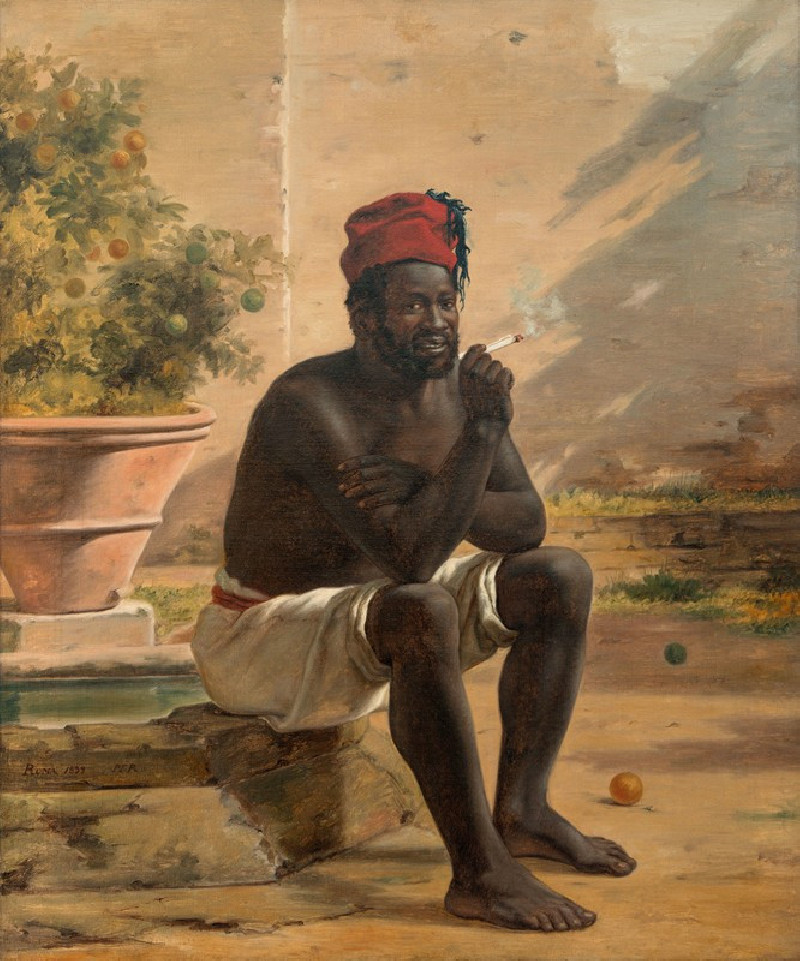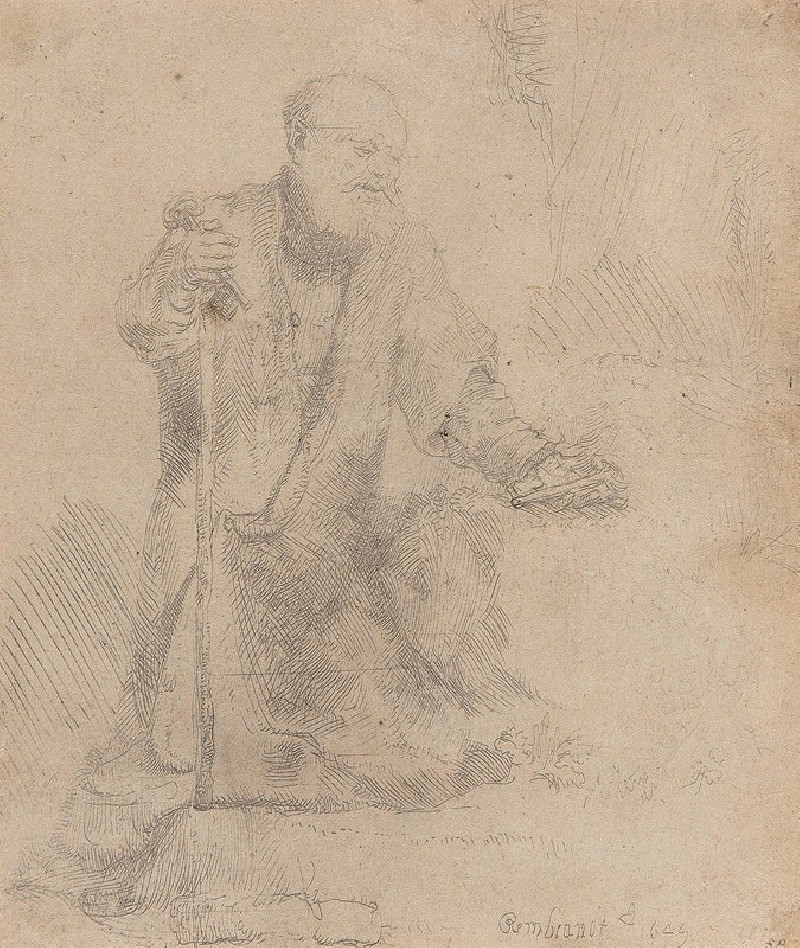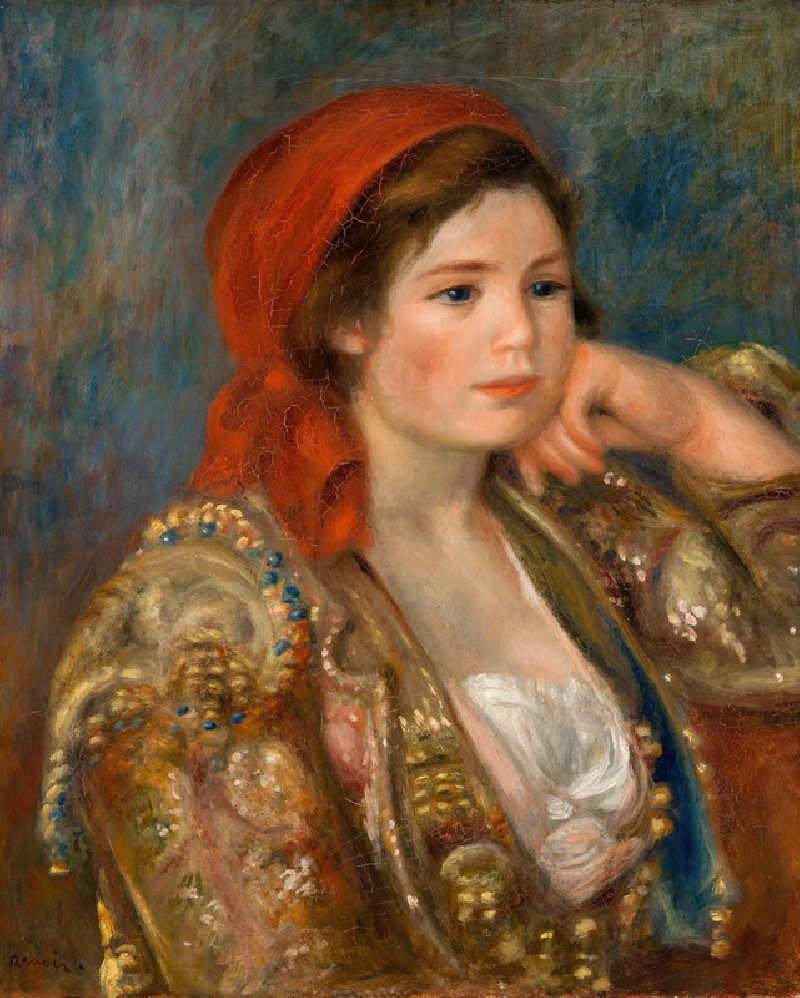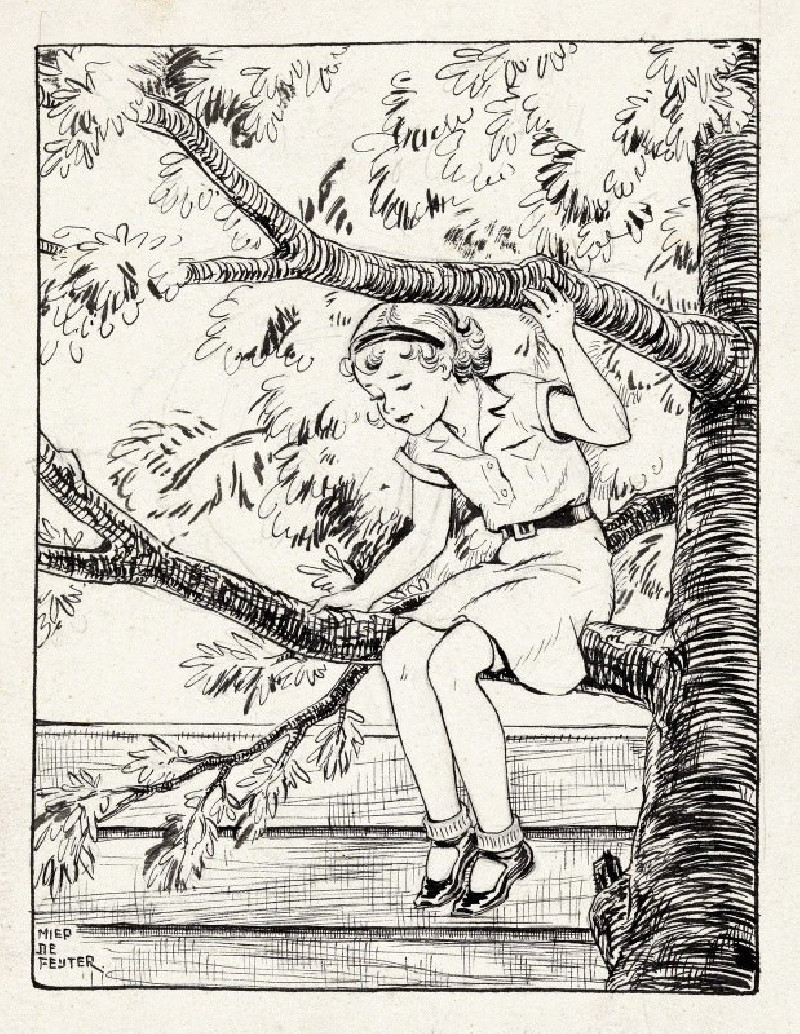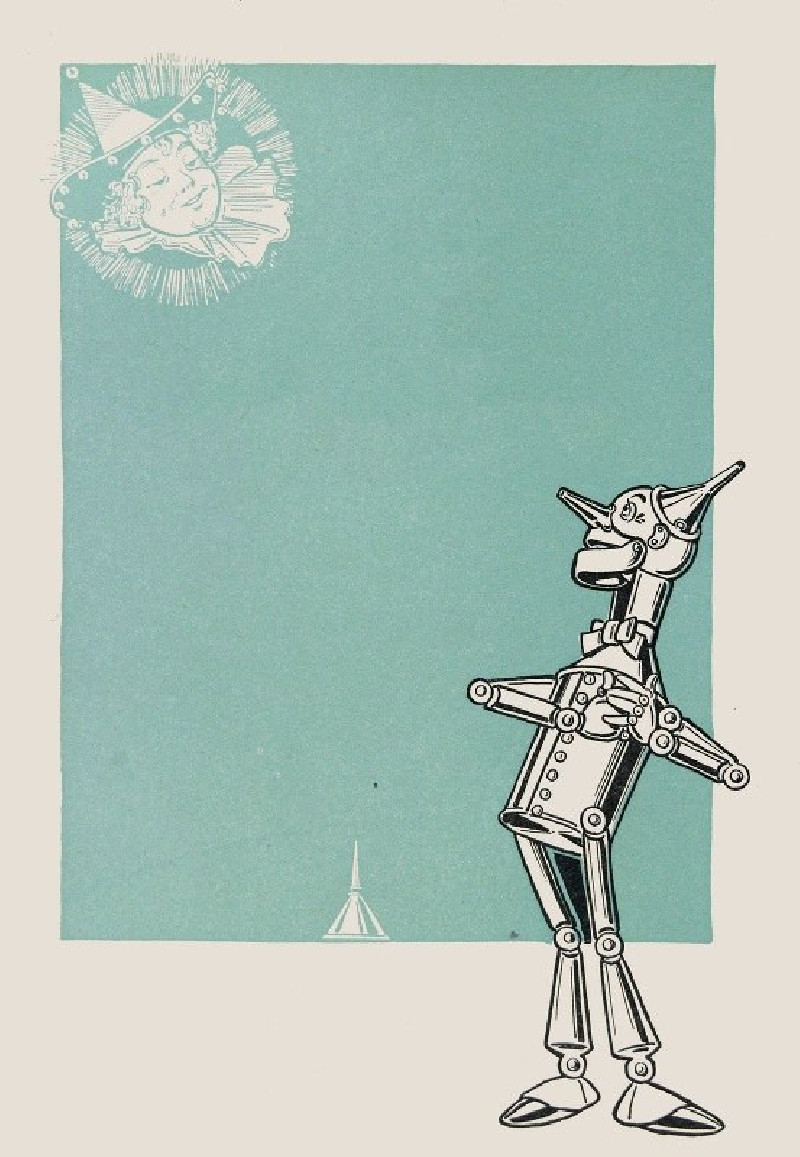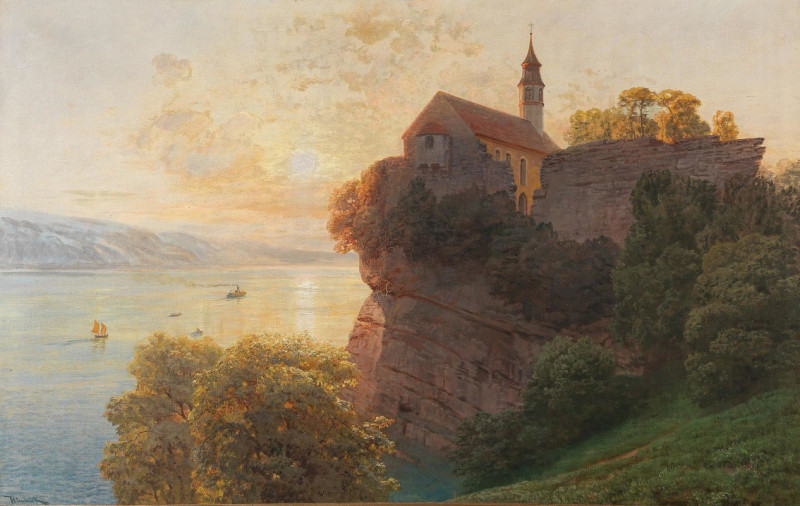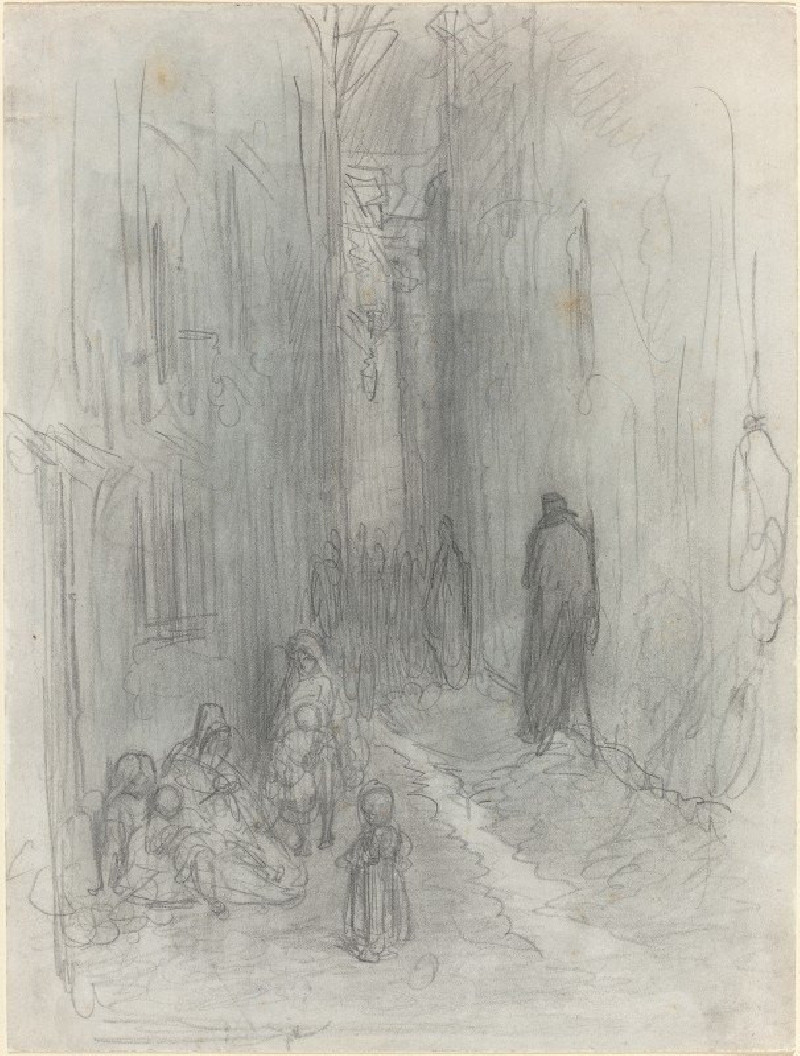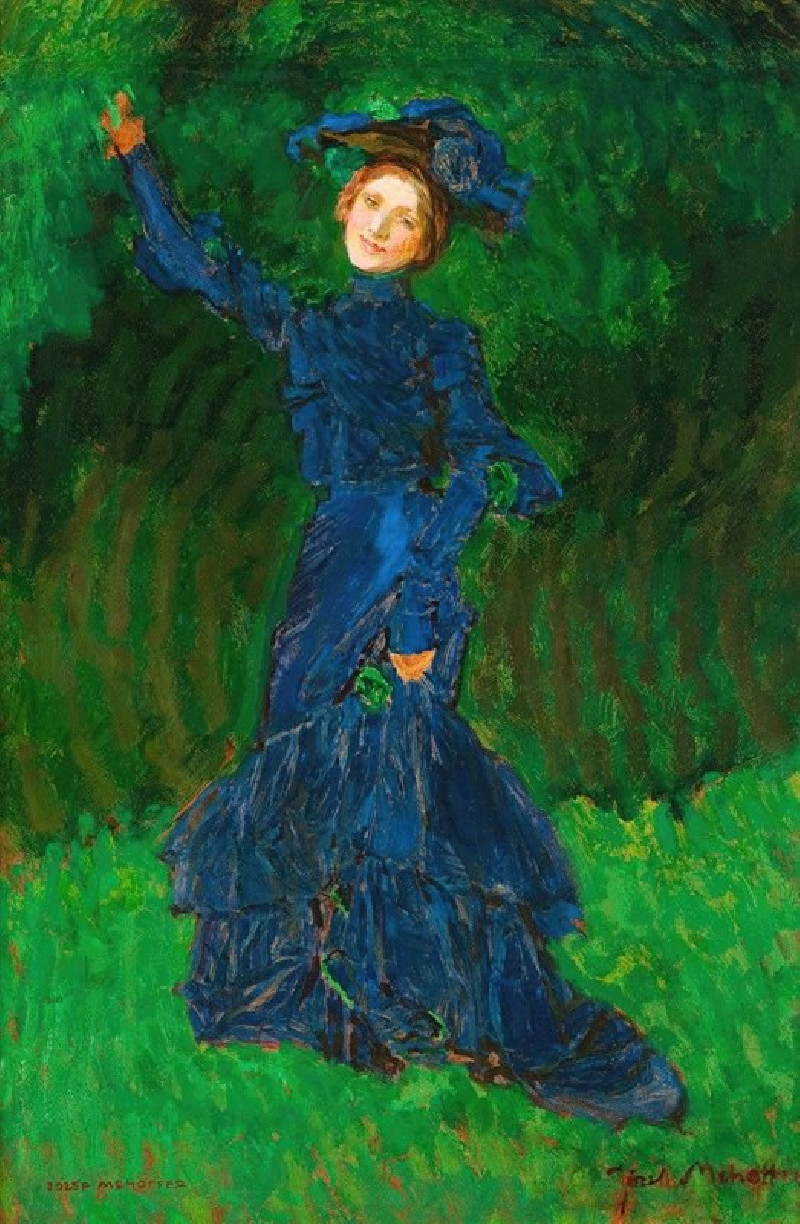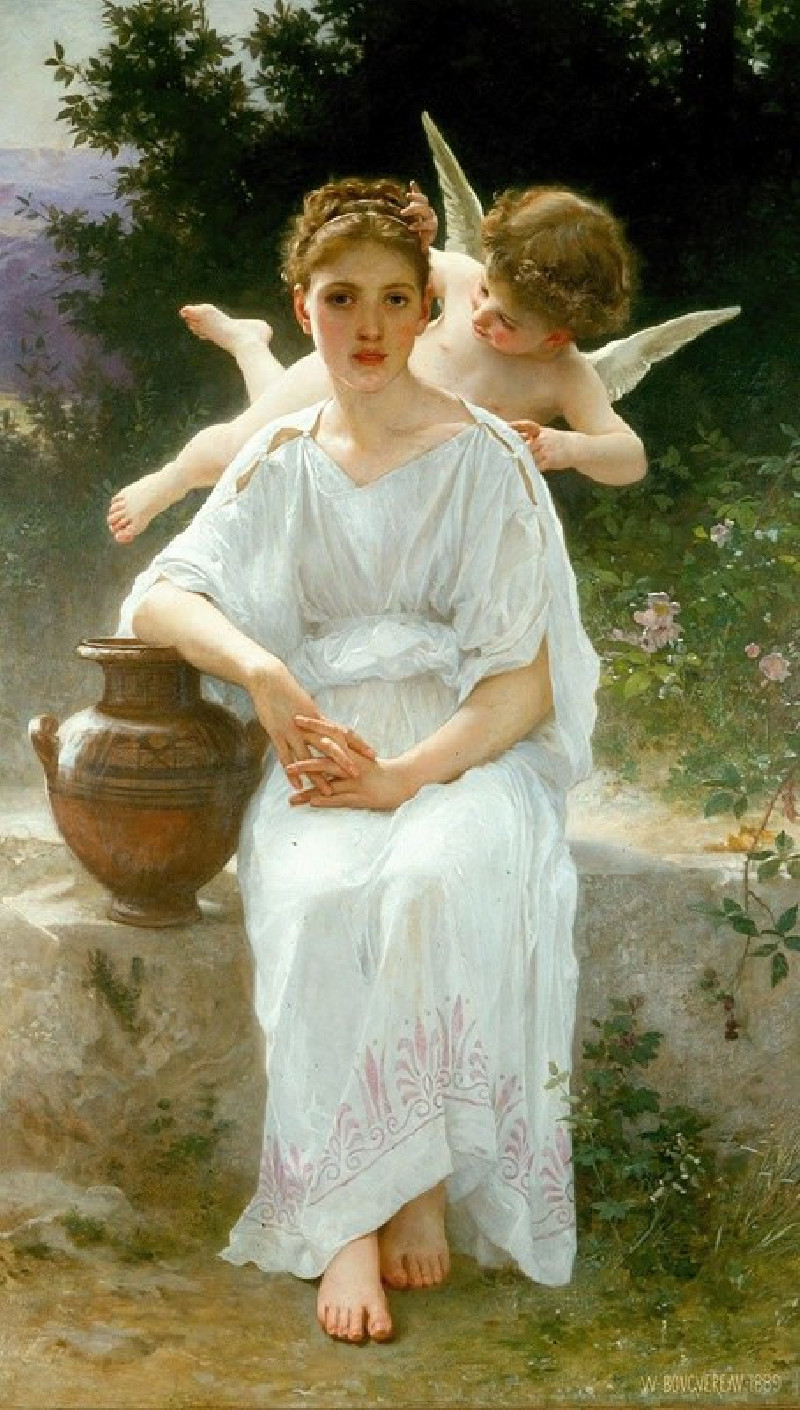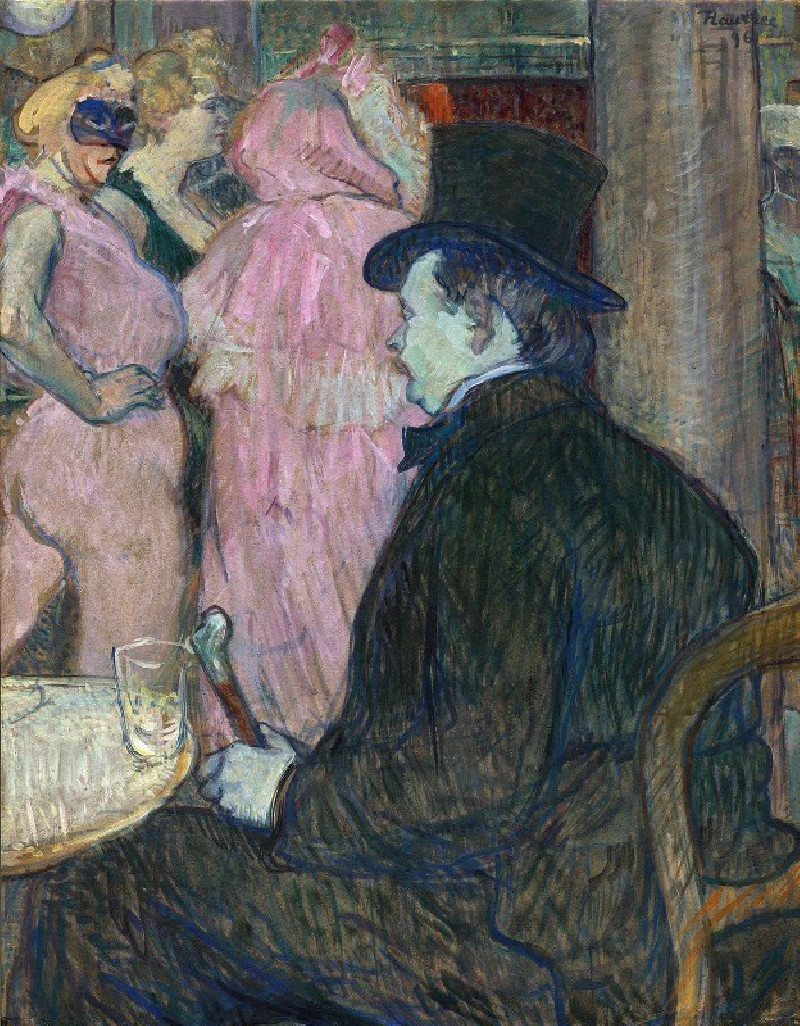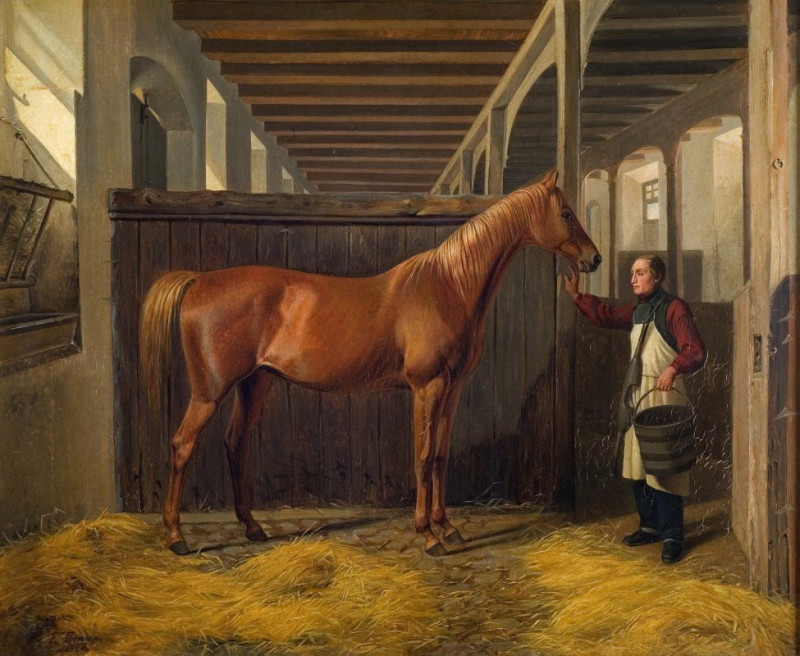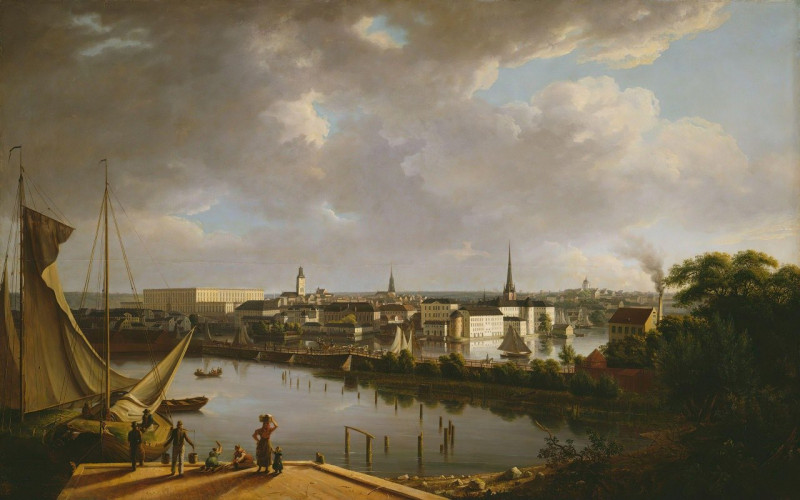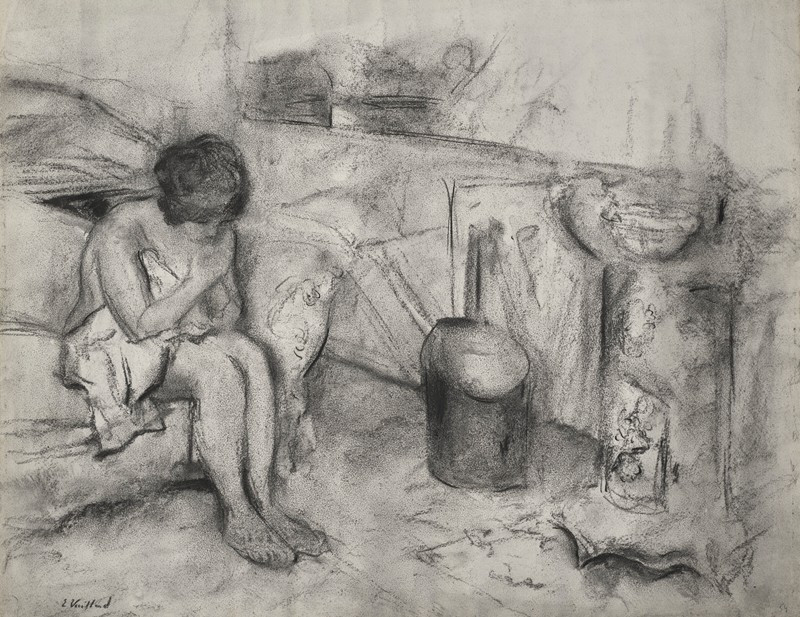Tree Trunk Leaning Against a Rock. Norway (1830)
Technique: Giclée quality print
Recommended by our customers
More about this artwork
Delve into the serene natural beauty captured in Martinus Rørbye's meticulous drawing, 'Tree Trunk Leaning Against a Rock, Norway'. This 1830 artwork draws the viewer into a rugged Norwegian landscape, emphasizing the resilience and isolated beauty of nature.The scene is set with a large, fallen tree trunk that rests against a sizeable, rocky outcrop. This central element guides the viewer’s eye across the composition, from the tree's twisted, exposed roots to its broken and splayed branches reaching out towards the sky. The trunk acts not only as a structural component but also as a narrative element, suggesting the passage of time and the natural cycle of decay and renewal.Rørbye's use of delicate line work and subtle shading brings a quiet drama to the composition. The detailed portrayal of the rocks, textured and uneven, contrasts with the soft, feathery leaves of the trees in the background, enhancing the sense of depth and space. In the distance, the calm waters and distant mountains suggest tranquility and the grandeur of the Norwegian landscape.This drawing is a testament to Rørbye’s skill in capturing the essence of the Nordic wilderness with a profound sense of realism and emotional depth. It invites viewers to reflect on nature’s enduring strength and its inevitable vulnerability.
Delivery
Returns
Martinus Christian Wesseltoft Rørbye was a Danish painter, known both for genre works and landscapes. He was a central figure of the Golden Age of Danish painting during the first half of the 19th century.
The most traveled of the Danish Golden Age painters, he traveled both north to Norway and Sweden and south to Italy, Greece and Constantinople. He was also the first Danish painter to take to painting in Skagen at the northern top of Jutland, almost half a century before the thriving community of Skagen Painters formed and came to fame, through Michael Ancher, Anna Ancher and P.S. Krøyer.

